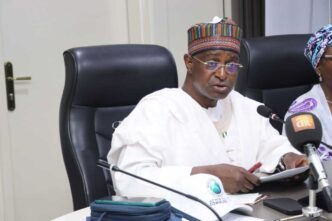Federal Ministry of Health and Social Welfare has revealed that Nigeria recorded more than 24 million confirmed malaria cases between January and September 2025.
Gatekeepers News reports that the data, featured in the 2025 National Health Statistics Report, shows a continual rise in infections across the first three quarters of the year.
Between January and March, 10.5 million people were tested and 7.3 million were diagnosed with malaria. Testing climbed further in the second quarter, with 11.4 million people screened and 7.8 million confirmed positive.
The highest figures were recorded between July and September, when 12.8 million Nigerians were tested and over 9.3 million cases were confirmed. Altogether, the country logged 24,467,232 cases within nine months.
Health experts say the rise mirrors Nigeria’s seasonal pattern, with infections increasing sharply during the rainy months when mosquito breeding intensifies. They warn that, without stronger interventions, cases could grow even higher before the end of the year.
Treatment records follow the same upward trend. More than 7.1 million patients received ACT medication in the first quarter; 7.6 million in the second; and over 9 million in the third, a total of 23.8 million people treated from January to September.
Speaking at 2025 Joint Annual Review in Abuja, Minister of State for Health, Dr Iziaq Salako, said the National Malaria Eradication Programme had made progress despite persistent challenges such as poor health-seeking behaviour and gaps in healthcare delivery systems.
The report calls for stronger community participation and sustained public health measures to slow the spread of the disease.
In a related development, global leaders pledged $11.34 billion to the Global Fund at its Eighth Replenishment Summit in Johannesburg, an amount well below the $18 billion target for 2027–2029.
Executive director Peter Sands said the shortfall means countries must adopt smarter and more sustainable approaches to funding, warning that abrupt reductions could affect critical programmes.
The United States remains the Fund’s largest contributor with a commitment of $4.6 billion. However, the Global Fund cautioned that ongoing budget constraints may force reductions to some grants through 2026.
Since 2002, the organisation has partnered with governments worldwide, including Nigeria, to deliver key interventions like insecticide-treated nets, HIV treatments, and tuberculosis medication.











